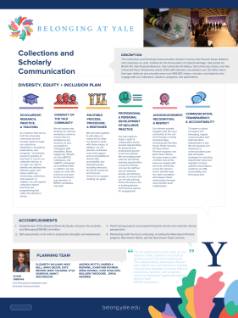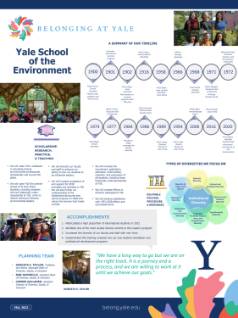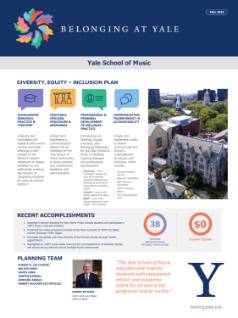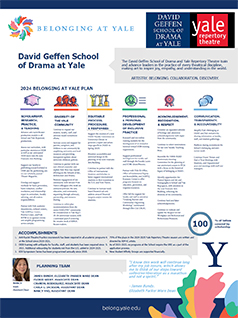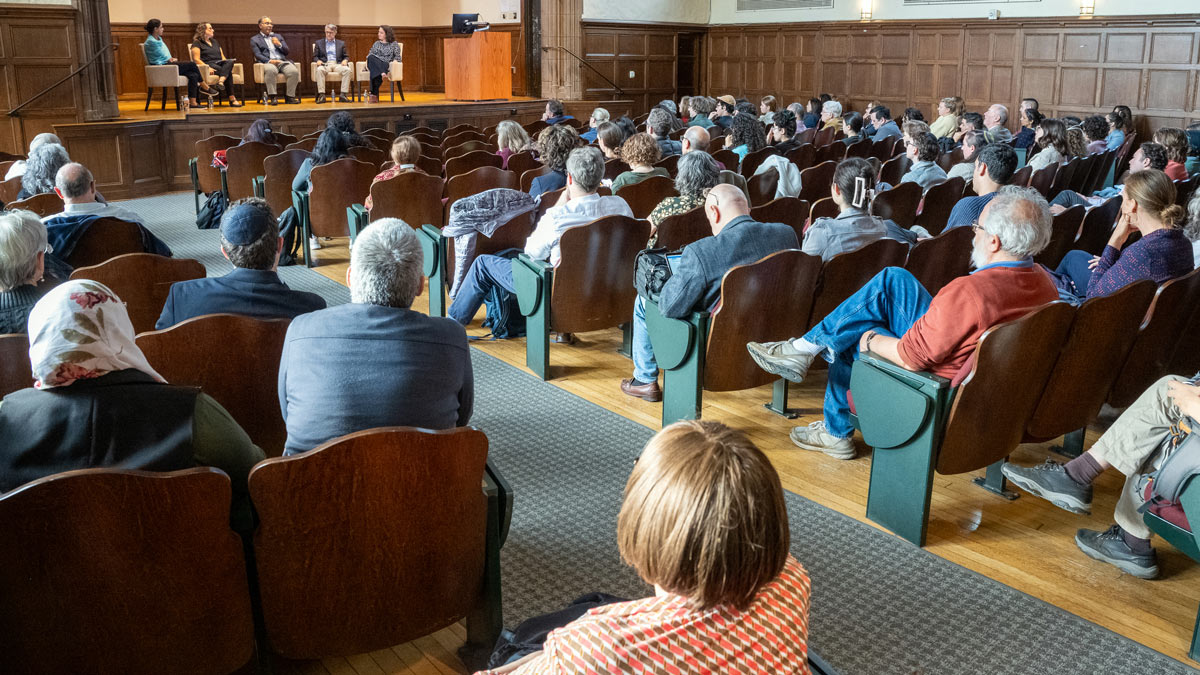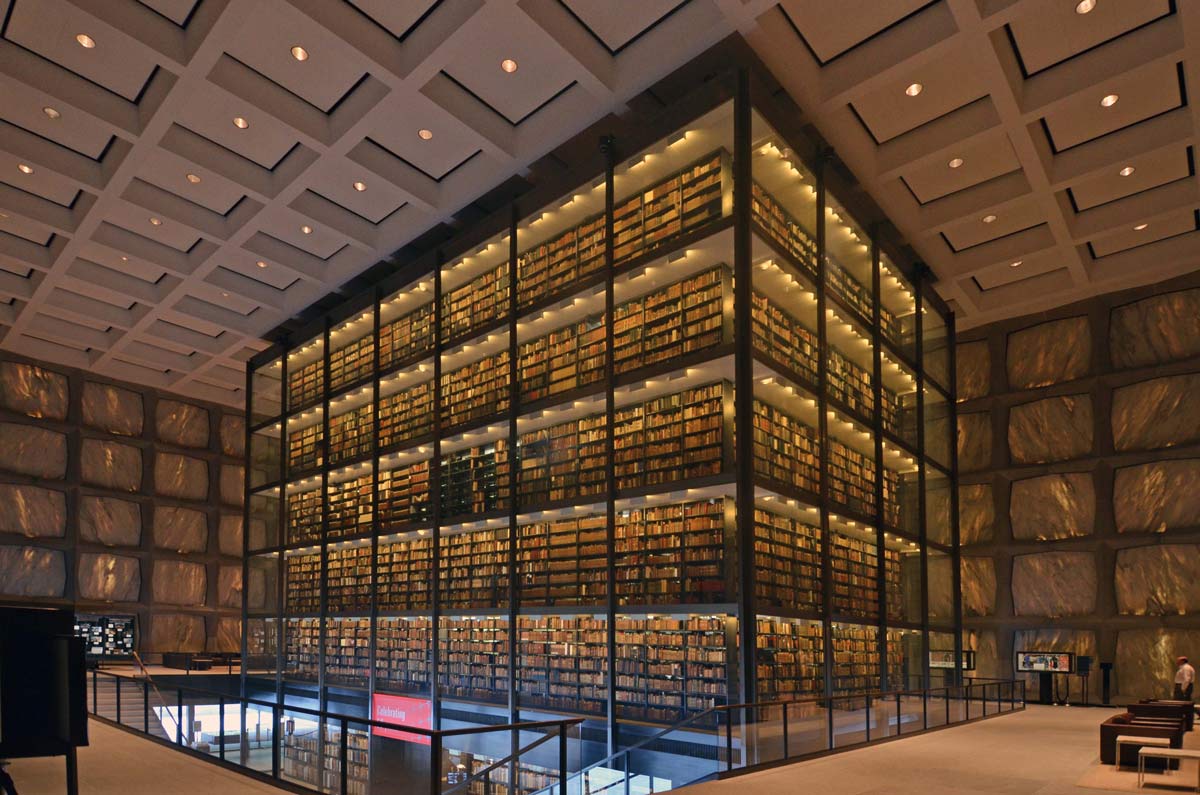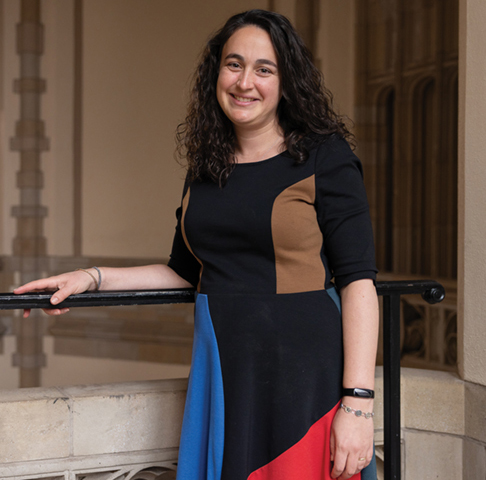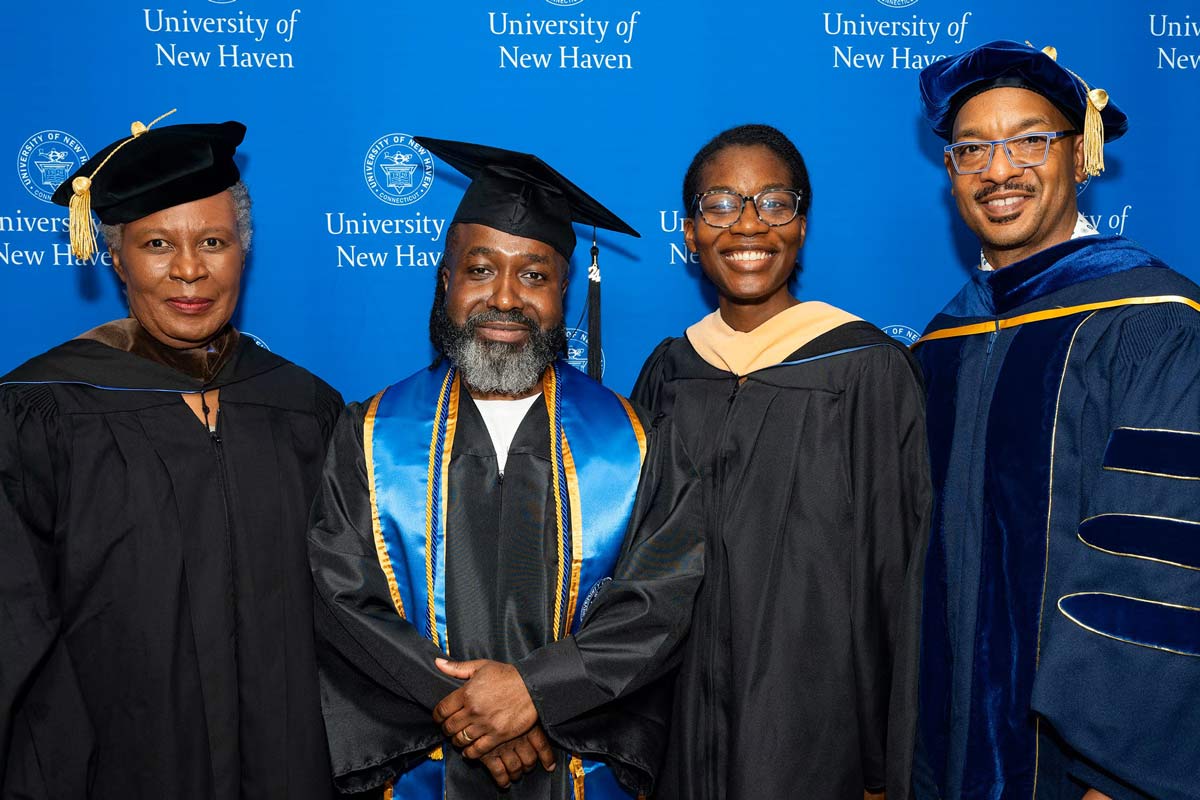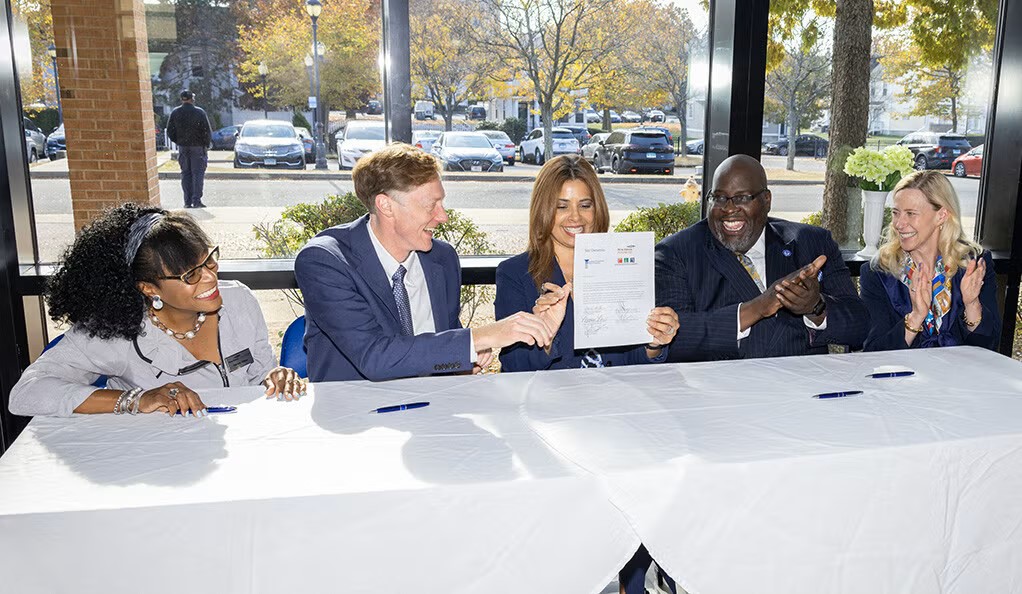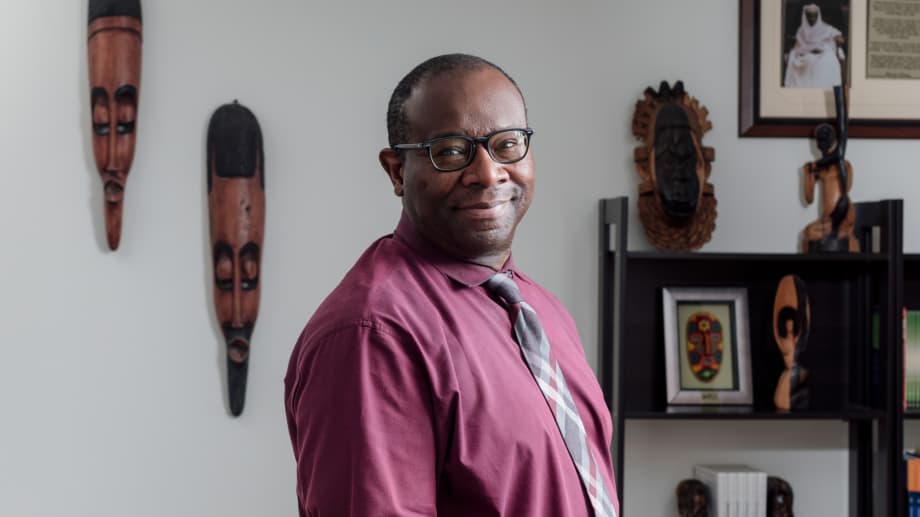Belonging at Yale Annual Report 2024
Belonging at Yale 2024 Annual Report

From the Secretary and Vice President for University Life
Together with Vice Provost Dr. Gary Désir, I am delighted to share the 2024 Belonging at Yale Annual Report. This report and the accompanying infographics for the schools and administrative divisions illustrate meaningful changes taking root across Yale to create and sustain a university environment where everyone can thrive.
This progress has been challenging. Over the past year, geopolitical events have drawn attention to our conflicting viewpoints at a time when many of our colleagues and students needed the support and compassion of their peers.
Through these difficult moments, the work of Belonging at Yale has persisted. In a constant process of learning, we have strived to adapt to the evolving needs of our community members and to sustain community values of welcome, inclusion, and respect.
The stories included here offer a glimpse of this work, highlighting the dedication of members of our university community to bringing the concepts and ideals of Belonging at Yale to life. We are advancing our work by partnering with a range of individuals, groups, schools, and offices. The Yale cultural centers, Office of International Students & Scholars, Joseph Slifka Center for Jewish Life at Yale, and LGBTQ Center have organized numerous community-building events while providing a home away from home for students of various identities and backgrounds. Advisory Committees for Arab and Muslim Student Life and Jewish Student Life and the Chaplain’s Office have advised Yale leaders on how to support student life and address issues related to the campus climate.
We continued to develop Cultivating Conversation, a Belonging at Yale initiative that provides tools, information, and opportunities for people to engage with one another openly and respectfully. Cultivating Conversation sponsors, supports, and celebrates activities of student groups, advisory committees, schools, and administrative units pursuing the same goals.
New partnerships like the Alliance for Scholarship, Collaboration, Engagement, Networking and Development (ASCEND, with HBCUs) have generated novel faculty collaborations and expanded educational pathways. University staff members have also designed and implemented innovative programs to promote inclusive workplaces.
This time has also been one of reflection. The university published the findings of the Yale and Slavery Research Project, issued an apology for the ways that Yale’s leaders, over the course of our early history, participated in slavery, and announced several initiatives to help address the legacy of slavery.
We celebrated the leadership of Peter Salovey — whose commitment to a welcoming university community helped sustain the development of Belonging at Yale — as he concluded his service as Yale’s twenty-third president. And we welcomed President Maurie McInnis, who wrote to the Yale community on her first day to “ask for your thoughts on how we can strengthen the Yale community and foster a sense of belonging.”
We are proud of the progress we have made and grateful to the Yale community for helping to strengthen our university culture and advance Yale’s excellence.
Looking forward, we are thinking about how to sustain and evolve the positive changes we have seen — identifying areas for further growth, and imagining what we can achieve together in the years to come.
To all of you who have been part of this journey — thank you for sharing in our commitment to fostering a community where we strive to help everyone feel connected, valued, and respected. We look forward to the work ahead.
Kimberly M. Goff-Crews
Secretary and Vice President for University Life
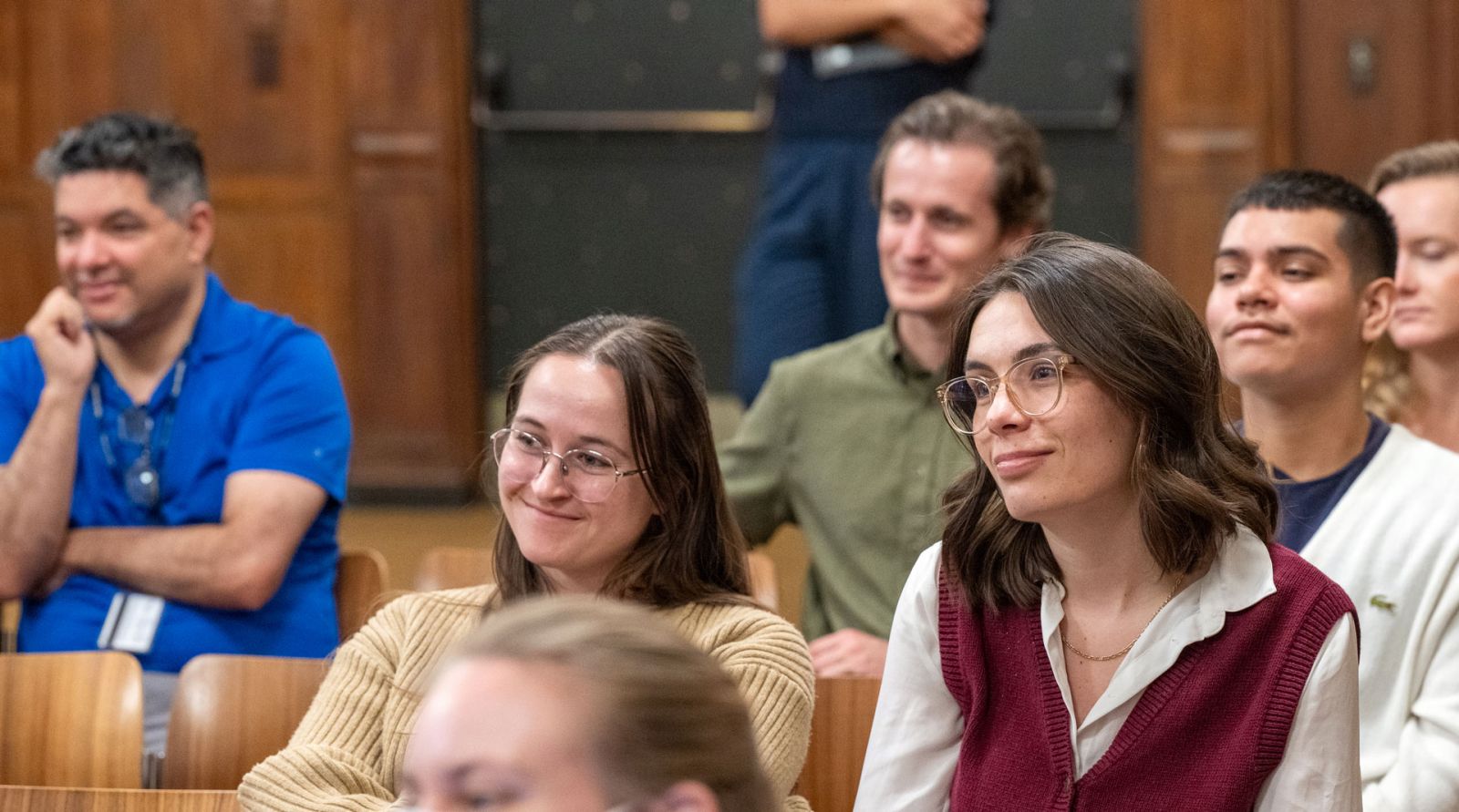
University Priorities

Free Expression
2024 marked the 50th anniversary of the submission of the Report of the Committee on Freedom of Expression at Yale, also known as the “Woodward Report,” Yale’s guiding document on free expression. The report maintains that universities’ essential work depends on the free exchange of ideas and an environment that supports the fullest degree of intellectual freedom. Exemplifying the principles it champions, the report includes a statement of dissent challenging the conclusions of the authoring committee.
Cultivating Conversation, an initiative of Belonging at Yale, turns the ideals of the Woodward Report into action. Through events, educational programs, and skill-building resources, the effort models constructive dialogue and promotes a community in which people can engage with one another effectively across differences in perspectives. (See a short video on Cultivating Conversation.)
Cultivating Conversation supported a range of programs this year, including a summer workshop for Yale managers led by Yale School of Management experts focused on fostering a workplace culture that empowers team members. In October, Yale College held a pilot of the Constructive Dialogue Institute’s Perspectives program for 50 student volunteers. The evidence-based online learning program equips students with the mindset and essential skills to engage in constructive dialogue across lines of difference. In November, David Tate, assistant clinical professor in Psychiatry at the Yale School of Medicine, led a pilot workshop for student leaders on developing skills in strategic communication and listening.
The newly established Center for Academic Freedom and Free Speech at Yale Law School also facilitates open communication by providing scholarly commentary and discussions on current issues of free speech and academic freedom. With an impact extending well beyond campus, the center aims to generate public awareness and conversation, inform policy, and safeguard free speech and academic freedom for future generations.
To further support expressive activities, the Office of the Secretary and Vice President for University Life has added website content that clarifies campus policies on free expression and peaceable assembly and brings related resources — including frequently asked questions together in a single location.
More initiatives are forthcoming through Cultivating Conversation to promote free expression on campus and to encourage open minds, civil dialogue, and continuous learning.
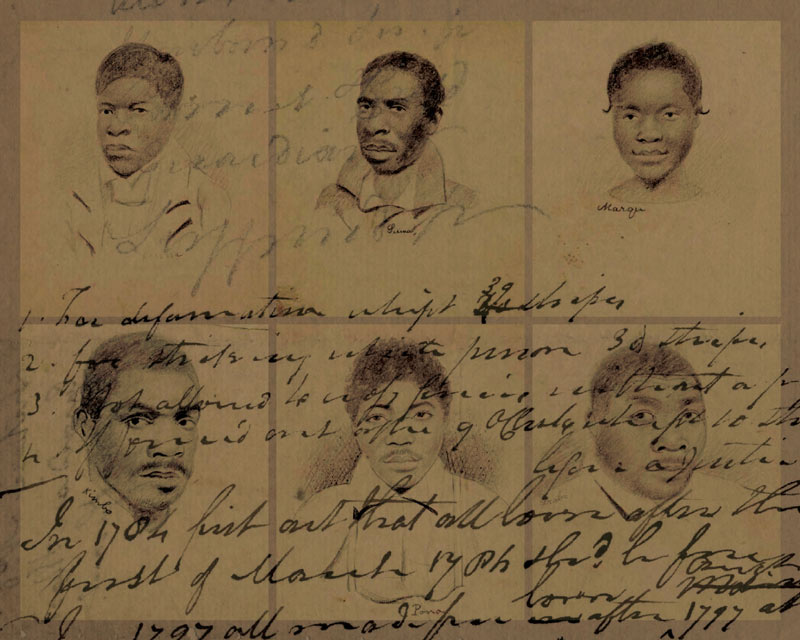
Yale Addresses its History with Slavery
In 2020, Yale began an in-depth examination of the university’s historical ties to slavery and the slave trade. This work reached a milestone in February 2024 with the publication of Yale and Slavery: A History, a book authored by Sterling Professor of History David W. Blight with members of the Yale and Slavery Research Project. The book provides the full findings of the Yale and Slavery Research Project in a narrative history and is available for free in its digital format. Alongside the book’s publication, President Emeritus Peter Salovey and Senior Trustee Josh Bekenstein issued a formal statement recognizing the university’s historical role in and associations with slavery, as well as the labor, the experiences, and the contributions of enslaved people to the university’s history, and apologizing for the ways that Yale’s leaders, over the course of its early history, participated in slavery.
With a more comprehensive understanding of the past, Yale has undertaken various initiatives focused on systemic issues that echo in our nation’s legacy of slavery — specifically, increasing educational access and expanding educational pathways for local youth in the New Haven community, and advancing inclusive economic growth in New Haven. These build on the initiatives and programs Yale has launched in the past few years as members of the research project shared their findings. The full details of the university’s response are available on the Yale and Slavery Research Project website.
Yale is also ensuring that its history, in its entirety, is better reflected across campus and is creating widespread access to the Yale and Slavery Research Project’s historical findings. An exhibition at the New Haven Museum, a collaboration of the Yale University Library, the Yale and Slavery Research Project, and the Museum, opened in February 2024. The exhibition — extended through March 2025 — draws from the research project’s key findings and focuses on stories of Black New Haven, including Black students and alumni of Yale, from the 1830s to 1940. Yale is paying admission fees for visitors to the exhibition, which was curated by Michael J. Morand with Charles E. Warner Jr. and designed by David Jon Walker. The Fall 2024 DeVane Lectures were taught by Professor Blight and entitled “Can It Happen Here Again? Yale, Slavery, the Civil War and Their Legacies.” The DeVane Lectures include members of the public who learn alongside Yale students and can enroll for free.
In September, twelve members of the Committee for Art Recognizing Enslavement (CARE) and the Committee on Addressing the Legacy of Slavery (CALS) visited civil rights memorials and historical sites across Alabama, focusing on the Equal Justice Initiative’s Legacy Sites in Montgomery. The visit provided time to reflect on racial injustice in America and on the role that artistic and other projects can have in engaging with and responding to the painful truths of the past, as well as future actions the university can take.
CARE is in the process of commissioning multiple works of art and related programming on campus that illuminate Yale’s past ties to slavery and the lasting effects of that history. The committee opened a request for proposals in 2024 that accommodated a variety of ideas, hopes, mediums, and needs and gave artists space to envision the work in their own way.
In spring 2025, the artist-in-residency phase will provide a discovery period for the artist(s) and stakeholders to determine the site and the work itself under a flexible timeline. Several sites on and around campus have been identified as possible locations for one-time or permanent works of art, along with accompanying educational programs that will inspire reflection, remembrance, and discussion as part of a long-term journey of learning and healing.
In parallel, the Committee on Addressing the Legacy of Slavery has held listening sessions to collect input on future actions Yale can take to address its history and legacy of slavery and create a stronger and more inclusive university community. Initial next steps will be reviewed in 2025.
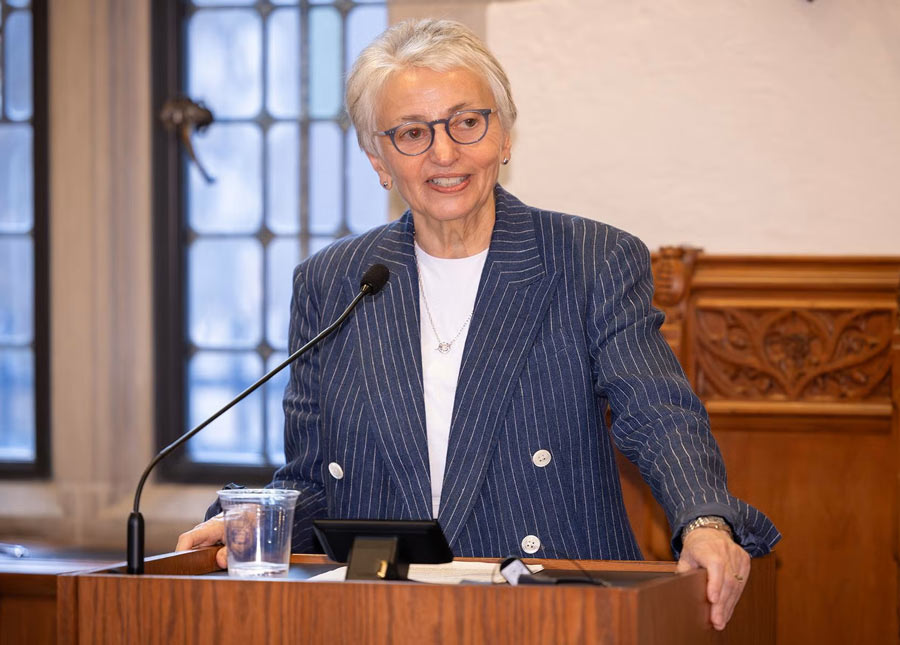
Faculty Diversity and Excellence
A faculty comprising a broad range of perspectives, backgrounds, and experiences is a cornerstone of excellence in research, scholarship, and teaching—and is essential to strengthening a sense of belonging throughout campus.
In 2015, Yale made a landmark commitment to this effort through the Faculty Excellence and Diversity Initiative (FEDI), which was renewed in 2019 with an expanded budget. Over the past decade, FEDI has supported Yale’s schools in making academic appointments that enrich the excellence and diversity of tenured or tenure-track faculty and in bringing distinguished visiting scholars and practitioners from around the world to Yale’s campus.
Since FEDI was implemented, the size of the ladder faculty has grown by 43 percent, with a 127 percent increase in the number of faculty members from historically underrepresented groups (URM), and a 73 percent increase in the number of women faculty members. The hiring of women and URM ladder faculty has outpaced departures.
The results of the university’s second Faculty Climate Survey, conducted in fall 2023, indicate that faculty satisfaction at Yale has also increased, especially among women and URM faculty members. Between the first survey in 2021 and the second in 2023, faculty members who feel a sense of belonging at Yale rose from 59 to 65 percent. Responses to five key indicators of climate and belonging show an overall improvement of six percentage points, with even greater increases in the reported sense of belonging among women and URM faculty members.
The trends in faculty recruitment, retention, and satisfaction reflect a university-wide commitment to advancing diversity, equity, inclusion, and belonging and the actions of individuals and groups across campus that help to make Yale a place where everyone can belong and thrive.
150 Eventshosted throughout the academic year at the Asian American Cultural Center
Cultural Centers Sustain Community
Yale’s four cultural houses—the Afro-American Cultural Center, the Asian American Cultural Center, La Casa Cultural, and the Native American Cultural Center—work throughout the year to support students. They engage the university and local communities in the diverse cultures and traditions of the Yale student body. And they attract applicants to Yale as visible examples of how the university provides spaces to forge community.
In February, the Afro-American Cultural Center (“The House”) held a series of events to commemorate Black History Month. Part of a broader set of annual initiatives led by The House, the events included a performing arts showcase, a genealogy workshop, and the production of more than 50 public-facing videos of Yale students reading children’s books that feature Black characters. In partnership with the Yale Black Alumni Association, The House also revitalized the Higher Education Initiative, providing students the opportunity to design and lead workshops to help youth in and alumni of the foster care system find their path to college.
Under the theme of “Nostalgia and the Path Forward,” university-wide celebrations and events organized by the Asian American Cultural Center (AACC) during Pan Asian American Heritage Month encouraged the Yale community to explore Asian American history while using creative mediums to imagine—or reimagine—future possibilities for Asian Americans. Oscar-nominated screenwriter and director Celine Song delivered the keynote address to hundreds of students. The month’s activities were some of nearly 150 events hosted throughout the academic year by AACC staff and students on topics ranging from cultural preservation to wellness and mental health.
In the fall of 2024, a new space opened for the MENA Cultural Community — students with connections to or interests in the Middle East and North Africa. The MENA suite — previously located within the Asian American Cultural Center and now in its own space at 305 Crown Street — is dedicated to supporting unique needs and celebrating diverse MENA cultures. Events since opening include graduate student meetups, reflection circles, an alumni breakfast and panel, and Friday Futoor (brunch) with various campus partners.
The Native American Cultural Center (NACC) expanded its signature events this year with the inaugural Pasifika Fest, Yale’s first large-scale event focusing on Pasifika students. The full-day celebration allowed the community to experience the traditions, music, dance, and cuisines of the Pacific Islands. The NACC also organized a four-day trip to Washington, DC, during which students toured museums and met with non-profit organizations, government agencies, and alumni. Other highlights from the year include Yale’s first Indigiprom, an Elder Chat and dinner with educator Dr. Henrietta Mann (Cheyenne), and numerous events during Indigenous Peoples Month.
La Casa Cultural continued its tradition of Cena a Las Seis (“dinner at 6”) every Friday during the academic year. Each dinner features a member of the undergraduate senior class or a special guest who shares their story—their path to Yale, experiences on campus, and future hopes and plans—over a catered meal of their choosing. Adding to a full program of events throughout the year, La Casa celebrated Latine Heritage Month with an annual retreat, several social events, a tour of Mexican photography at the Yale University Art Gallery, and a community conversation and reception with award-winning journalist Alana Casanova-Burgess.
In what has become a cherished tradition, each center concludes the academic year with a house-organized ceremony to honor graduating students and their cultures and traditions.
Other centers and offices at Yale also contribute to a vibrant university community. The Joseph Slifka Center for Jewish Life, associated with Yale and a member of Hillel International, cultivates experiences that enrich the lives of Yale students and empowers them to grow as Jewish adults, connect across personal histories, and create a welcoming community. The Office of International Students & Scholars serves over 8000 people who come to Yale from more than 125 countries. From immigration matters to social and educational activities, the office ensures a smooth adjustment to life at Yale. The LGBTQ Center’s mission is to support and empower students, faculty, staff, and alumni of all sexual orientations, gender identities, and expressions to strengthen and unite the university community. The center was renamed from the Office of LGBTQ Resources in 2024, reflecting a community center model and affirming a commitment to address anti-LGBTQ sentiment and bias.
$10 Millioncommitment to expand and deepen the university’s partnerships with Historically Black Colleges and Universities
Strengthening Partnerships with Historically Black Colleges and Universities
In March, Yale announced a $10 million commitment to expand and deepen the university’s partnerships with Historically Black Colleges and Universities (HBCUs) over the next five years. The newly established Alliance for Scholarship, Collaboration, Engagement, Networking, and Development (ASCEND) is leading this work at the university, in collaboration with nine HBCUs that have launched formal institutional partnerships with Yale: Claflin, Fisk, Hampton, Jackson State, Morehouse, Morgan State, North Carolina A&T State, Prairie View A&M, and Tuskegee.
In its first year, ASCEND awarded 11 grants of $125,000 each supporting research collaborations between HBCU and Yale faculty members. The projects include six in STEM fields, one in quantum science, two in public health, and two in architecture. Grants range from one to two years in length and will be awarded each year to advance research that transcends institutional boundaries and works across disciplines to address global challenges.
ASCEND will also sponsor three faculty research fellows in the 2024—2025 academic year in the fields of public health, computer science, and the humanities, as well as five collaborative teaching innovation awards for faculty members from Morgan State University, Hampton University, and Howard University. Each teaching fellow partners with a Yale faculty member to develop interconnected courses that bring students together across institutions, virtually and in person.
Beyond faculty support, ASCEND is expanding pathway programs at Yale to provide opportunities for more students from HBCUs. This year, ASCEND supported HBCU students (both graduate and undergraduate) who participated in summer research programs on campus.
To date, $1.9 million has been disbursed to support faculty research, teaching programs, and student research opportunities. In the coming year, ASCEND will continue to expand its efforts to increase representation and amplify the important contributions of HBCUs in research, scholarship, and education.
The effort to strengthen our partnerships with HBCUs is prompted in part by the role that prominent Yale community members played in preventing the establishment of a college for Black men, which would have been the first in the country, in New Haven in 1831.
48 Leadersof belonging and inclusion efforts across campus participated in Dare to Lead
Community Among Colleagues
Providing opportunities for professional and personal development, education, and training is a key action area of Belonging at Yale. Throughout campus, staff initiatives are equipping colleagues with the skills to support the university community and are helping to make inclusive practices an integral part of the workplace.
This summer, the Office of the Secretary and Vice President for University Life (OSVPUL) sponsored a Dare to Lead training led by a certified trainer for 48 leaders of belonging and inclusion work across campus. Based on the research of Brené Brown of the University of Houston and UT-Austin, Dare to Lead is an empirically based program for developing leaders who build trust, operationalize values, empower others, and embrace vulnerability, and for fostering workplaces where people feel safe, seen, heard, and respected. The training provided participants with actionable strategies and skills and will be offered again in early 2025.
Training and resources on non-discrimination, including addressing antisemitism and Islamophobia, has been provided to university leadership, new faculty members, heads of college, Yale College staff, and other student life staff, leading up to the beginning of the 2024-2025 academic year and through the fall term. In October, with support from Cultivating Conversation, Chaplain Maytal Saltiel, Director of Muslim Life Omer Bajwa, and Slifka Center Executive Director Uri Cohen participated in panel discussions for faculty and staff on understanding the campus climate for Yale’s Jewish and Muslim students.
The Title IX Office has also led a series of staff trainings on supporting community members. A full-day fall professional development event co-hosted with the University-Wide Committee on Sexual Misconduct focused on deepening awareness of Title IX and on preventing and responding to sexual misconduct. This followed a professional development day over the summer held in conjunction with the Office of Institutional Equity and Accessibility and was dedicated to skill-building for Deputy Title IX Coordinators and Discrimination and Harassment Resource Coordinators.
In the Office of the Provost, a staff mentorship program is strengthening connection among colleagues. Now entering its third year, the program matches mentors and mentees based on survey responses and provides opportunities to connect through individual mentoring meetings and group events, which this year included a visit to the Wu Tsai Institute led by faculty director Nick Turk-Browne. Sixty-two percent of the office’s staff participate in the program.
To explore and promote best practices in mentorship, the Offices of the Provost and the Secretary and Vice President for University Life co-sponsored a university-wide training on mentorship and cultivating inclusive mentoring structures. The training, which featured faculty and staff panelists and a keynote speaker from Cornell University, provided participants with skills and strategies to implement in their units. At the end of the year, faculty will participate in another mentoring workshop hosted by the National Center for Faculty Development and Diversity.

Unit-specific Results
With support from Belonging at Yale, 27 schools and administrative units across the university have developed and implemented plans reflecting specific and measurable actions they will take to increase diversity, equity, inclusion, and accessibility in their spaces.
The unit plans are built around six areas of focus: scholarship, research, and teaching; diversity of the Yale community; equitable processes, procedures, and responses; professional and personal development of inclusive practice; acknowledgement, recognition, and respect; and communication, transparency, and accountability.
The unit plans address actions that benefit the broader university community in addition to those specific to each unit. Activities include improving communication as well as practices for hiring, retention, promotion, and equity; student recruitment; curriculum review; and accessibility. Professional development is a focus of both administrative and school plans, and schools are also engaging their alumni on issues of inclusion.
Fourth-year infographic posters developed by schools and units highlight progress toward their goals.
Unit plans were created
Units have committed to actions with the City of New Haven
Total actions were pledged for Year 4

Timeline Highlights






2024
The second faculty climate survey results were released on January 31. They showed higher satisfaction in nearly every area, including a sense of belonging and of being part of a respectful and collegial community.
Published on February 16, Yale and Slavery: A History by David W. Blight and the Yale and Slavery Research Project provides the project’s full findings. President Peter Salovey and Senior Trustee Josh Bekenstein issued a formal apology for Yale’s historical role in and associations with slavery.
On March 5, Provost Strobel announced the Alliance for Scholarship, Collaboration, Engagement, Networking and Development (ASCEND) to strengthen Yale’s partnership with Historically Black Colleges and Universities.
On July 1, Maurie McInnis became Yale’s 24th president.
On August 13, Secretary and Vice President for University Life Kimberly Goff-Crews announced a new webpage consolidating policies related to free expression and gatherings on campus, affirming free expression as a fundamental value and shared responsibility.
On August 20 and 21, all new faculty members participated in a session on non-discriminatory working and learning environments, including resources for addressing discrimination and harassment and examples of antisemitism and Islamophobia.
On September 8, Maytal Saltiel was formally installed as University Chaplain — the first Jewish person in this role.
On September 27, the university announced responsive actions to improve Arab and Muslim student life and Jewish student life, incorporating recommendations from the Advisory Committees on Arab and Muslim Student Life and Jewish Student Life and input from student, faculty, and alumni groups.
On October 2, the Yale Law School announced the establishment of the Center for Academic Freedom and Free Speech.
On October 30, the Yale Teaching Fellowship was announced — a $10 million commitment to support aspiring teachers who commit to three years of service in New Haven Public Schools.
On Election Day, Yale Votes: A Student Initiative sponsored Community Walks to the Polls and held watch parties.
2023
On March 24-25, the Yale Alumni Association held the third IMPACT conference for alumni, with the theme Building an Equitable Future.
On April 24, President Salovey announced that the board of trustees had conferred honorary degrees on James W.C. Pennington and Alexander Crummell, who studied at Yale in the 1830s and 1840s but could not enroll because they were Black.
On June 14, President Salovey announced the creation of the Committee for Art Recognizing Enslavement (CARE), which will commission art and related programming to address Yale's historic associations with slavery and the legacy of that history.
On June 29, following Supreme Court decisions on the consideration of race in college admissions, President Salovey affirmed Yale's commitment to a diverse and inclusive community and to using all lawful means to achieve and maintain the diversity of the student body.
On September 14, a ceremony in Battell Chapel marked the celebration of the conferral of honorary degrees on James Pennington and Alexander Crummell.
On November 10-11, Henry Roe Cloud Conference participants celebrated the tenth anniversary of the Native American Cultural Center with speakers, music, research presentations, an archive gallery, and social events. Cloud, a member of the Winnebago nation, is the first known Native American to graduate from Yale, in 1910.
On December 8, the university published infographic posters highlighting the priorities and accomplishments of Yale's schools and administrative units under their Belonging action plans.
2022
For Humanity, Yale’s capital campaign, announced that $1.2 billion would be raised for increased financial aid and fellowships in all schools.
1stGenYale, an alumni affinity group, placed 126 Yale College students on financial aid in 86 summer internships. Projects included research for Yale faculty (in the Schools of Public Health, Medicine, and Management) as well as non-Yale faculty, and internships at domestic and international institutions in the arts, education, science, government, social justice, and public service.
In early 2022, a communications project to inform and engage students, faculty, staff, and alumni was launched in collaboration with the Office of Public Affairs and Communications. Focused on opportunities for members of our university community to learn, experience, and act, this work includes monthly themes and opportunities for connection.
Schools and administrative units updated their Belonging at Yale plans and reviewed progress toward their goals. West Campus joined 27 other units creating action plans for the 2022-2023 year.
President Peter Salovey and Provost Scott Strobel announced the results of Yale’s first university-wide faculty climate survey, designed to help identify both strengths and areas that need additional work to foster a more productive, vibrant, and inclusive campus culture for the faculty.
A new scholarship, paid by Yale through the New Haven Promise program and named for James W.C. Pennington, the first Black student to attend Yale, will support local students attending historically Black colleges and universities (HBCUs).
2021
Every school and administrative division on campus submitted its five-year plan to improve diversity, equity, and inclusion and promote a culture of belonging. The plans complement existing institutional actions to enhance diversity, promote equity, and foster an inclusive campus environment. The 27 plans were developed by 150 Yale community members and included more than 230 actions that contribute to a community of belonging.
Yale made an historic investment in the economy of the City of New Haven through a $140 million, six-year pledge toward inclusive growth.
Yale and Slavery Working Group was appointed by President Salovey and held a three-day conference.
The Law and Racial Justice Center was created, led by founder James Forman, J. Skelly Wright Professor of Law. The Center’s mission is to reform public safety and justice systems by developing practical applications that address complex societal issues.
Emerge, a new program for staff who have high potential for leadership roles and who will bring excellence and diversity to the senior ranks, was launched by Human Resources in consultation with the School of Management. Emerge completed its pilot program, with 19 participants, and launched a second cohort, with 21 participants.
The Supplier Diversity Program was created to identify and encourage New Haven minority-owned and women-owned businesses to bid for Yale contracts for services and supplies. The university established a “Net-15” policy through which local vendors are paid within 15 days of receipt of invoices.
The Office of Institutional Equity and Accessibility, Title IX, Student Accessibility Services, and the University Advisory Committee on Accessibility Resources were brought together under common leadership, and staff were added to meet significantly increased needs in the university community.
The Asian-American Cultural Center celebrated its 40th anniversary with a series of virtual events and the creation of a commemorative mural on the outside of the building.
2020
President Peter Salovey established the Committee on Diversity, Inclusion, and Belonging and charged its members to review current activities and initiatives and offer a vision for diversity, equity, inclusion (DEI), and belonging; develop goals to achieve this vision; outline strategies to focus resources; and recommend actions to advance these strategies.
With the recommendations from the committee, President Salovey announced a new phase for Belonging at Yale — delving into the university’s history, building on existing work and measuring progress, assessing, and enhancing current actions, and making Yale a more welcoming place for everyone.
Professor and author of “The Person You Mean to Be” Dolly Chugh kicks off the Belonging at Yale Antiracism Speakers Series, followed by Professor Ibram X. Kendi, speaking about his book How to Be an Antiracist. The series continues with grants to schools, academic departments, and student organizations.
A collaborative system to support the safety of all students, faculty, staff, and guests was created by the Office of Public Safety and Engagement and the Office of the Secretary and Vice President for University Life (OSVPUL) in partnership with deans and staff in the schools, the Office of Emergency Management, Mental Health & Counseling, and other units. The OSVPUL now leads the coordination of activities that support the university’s commitments to free expression, including preparations for and responses to protests and high-profile events.
2019
The Faculty Excellence and Diversity Initiative (FEDI) was extended for another five years, with an increase in budget to $85 million from $50 million to support ladder faculty and presidential visiting fellows whose backgrounds and/or research interests enhance diversity.
The Emerging Scholars Initiative was created to recruit and retain outstanding graduate students from backgrounds that have been underrepresented in their chosen fields of study, including historically underrepresented minority students, first-generation college graduates, students from economically disadvantaged backgrounds, and women in STEM fields; graduate students who plan to pursue research related to issues of diversity and identity; or those who have been or are currently involved in diversity-related initiatives by volunteering for community service or outreach on a college or university campus.
The Afro-American Cultural Center (“The House”) celebrated its 50th anniversary, recognizing the intellectual, professional, and cultural contributions it has made to the Yale community and to society.
First Yale Alumni Association Impact conference was held. Impact II followed in 2021, and Impact III, in 2023.
50Women150 celebrated the 150th year of the first women students at Yale and the 50th anniversary of the admission of women to Yale College.
 Be Open Be Curious
Be Open Be Curious
Speakers, events, learning opportunities, and communication resources sponsored by Belonging at Yale in partnership with the Office of Public Affairs and Communications invite students, alumni, staff, and faculty to “Be Open Be Curious.” These activities educate and inform Yale community members, facilitate conversations among those with diverse viewpoints, address challenges to inclusion, and deepen a culture of respect and connection. Much of the 2024 activity focused on Cultivating Conversation.
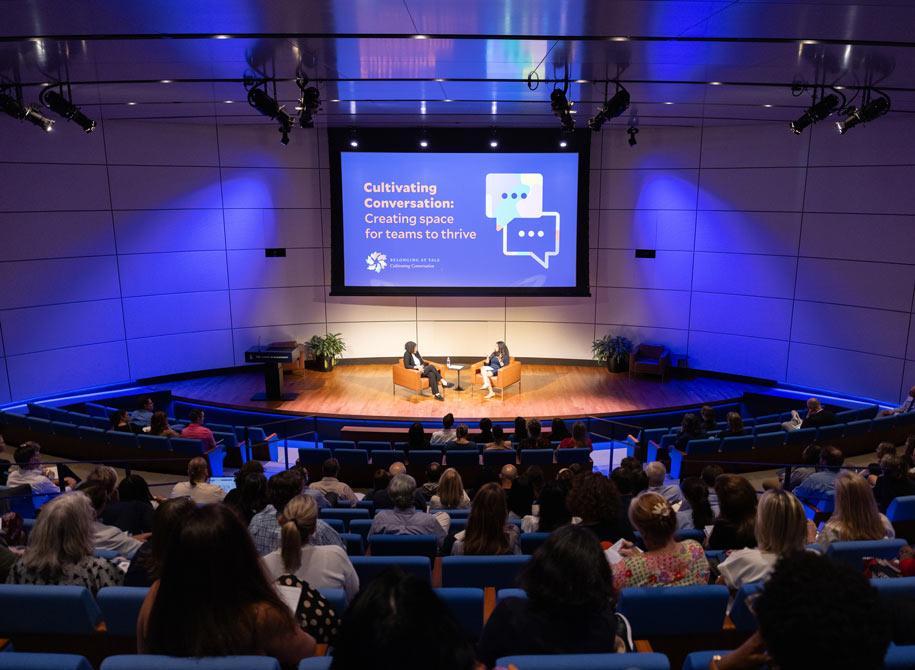
Create Spaces to Thrive with These Five Strategies
On September 19, Yale managers gathered to hear from two experts from the Yale School of Management who shared their expertise on how to foster a workplace culture that empowers team members. While their conversation centered on the workplace, their insights apply to the classroom and broader campus community. The five strategies discussed during the session, sponsored by Cultivating Conversation, are a resource for students, faculty, staff, and alumni.
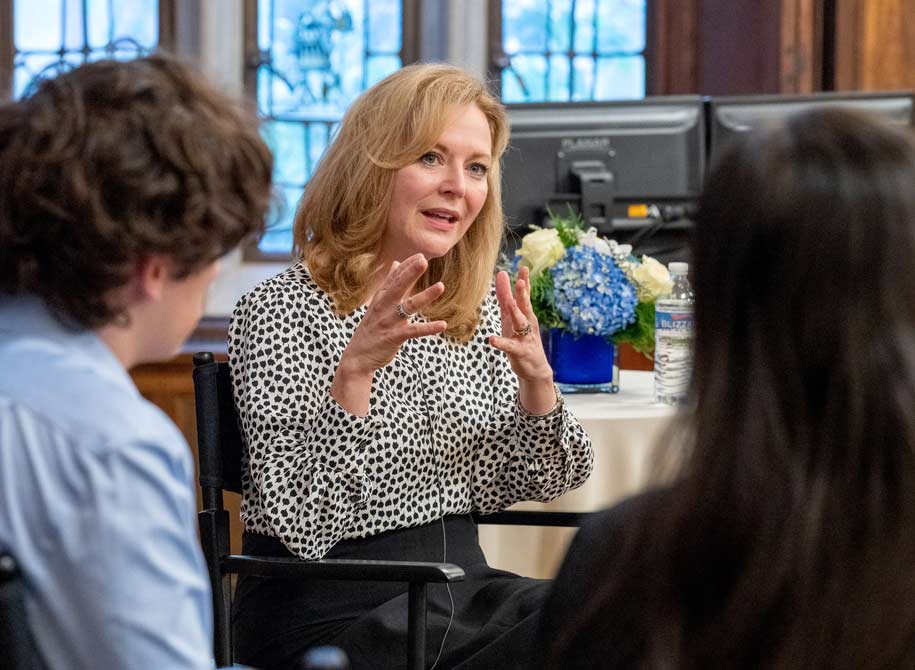
Be Curious About Student Civic Engagement
On October 2, political scientist Melissa Deckman spoke about the politics of Gen Z, offering a glimpse into the attitudes and motivations behind a new wave of civic engagement among younger generations. The talk was cosponsored by the Office of the Secretary and Vice President for University Life and Yale Votes: A Student Initiative and was part of an expanded student civic engagement effort in 2024. Yale College Dean Pericles Lewis also held a series of Dean’s Dialogues focusing on the election.
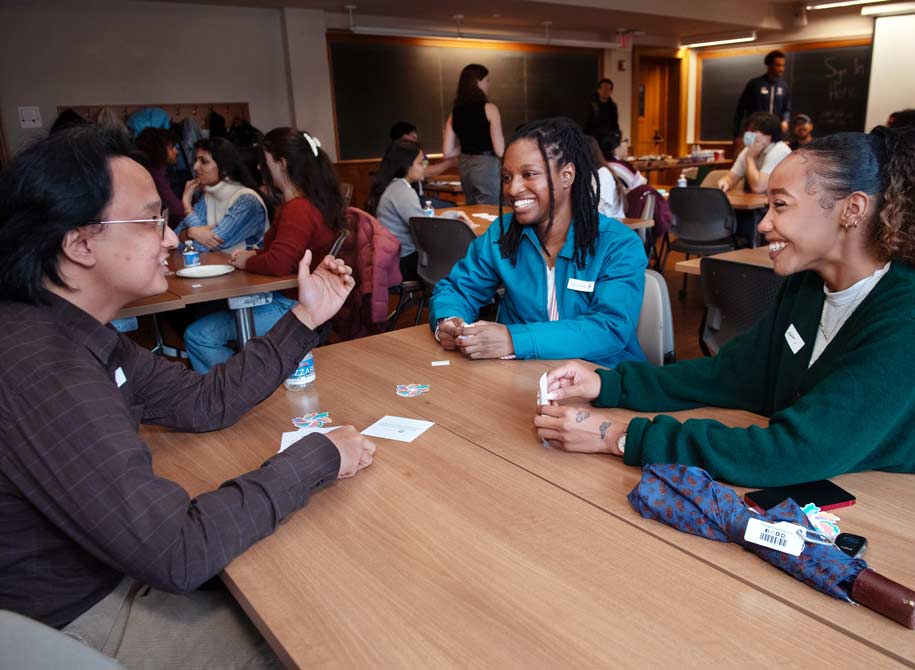
Being Open to a New Friend
In April, the Woodbridge Fellows — recent Yale College graduates now working at the university — and the Future Leaders of Yale, the young professional affinity group, organized a “speed friending” event. The starter prompts led to conversations that went beyond small talk and moved dialogue deeper to create connections. The event was part of Cultivating Conversation programming.
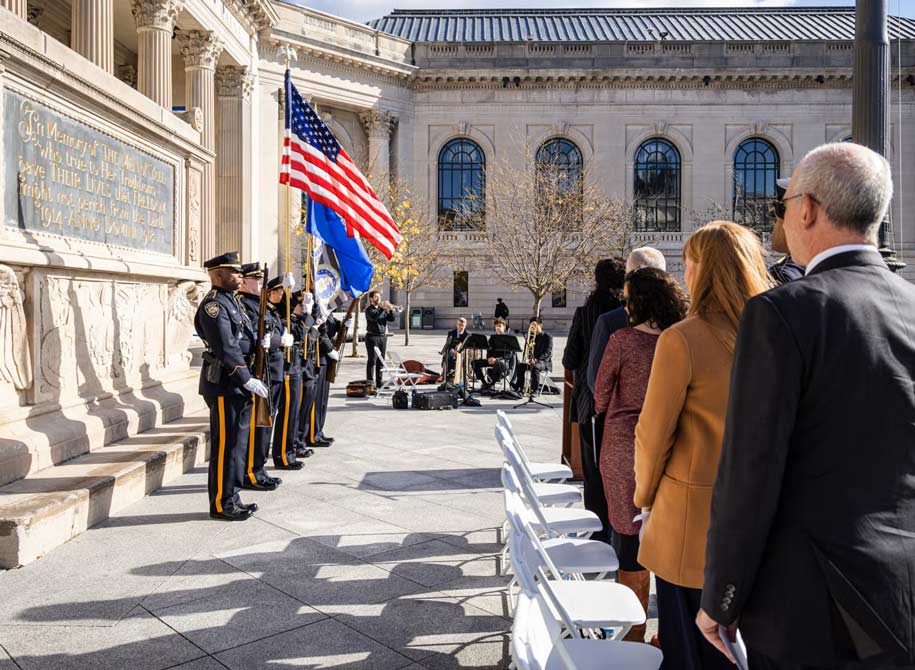
Monthly Themes Feature Diverse Groups and Interests
Belonging at Yale monthly themes center around heritage and diversity celebrations and similar observations. In the spirit of “Be Open Be Curious,” communications staff in Yale’s schools and divisions share events, information, and cultural resources to inspire learning, awareness, and conversation in their areas of campus.
